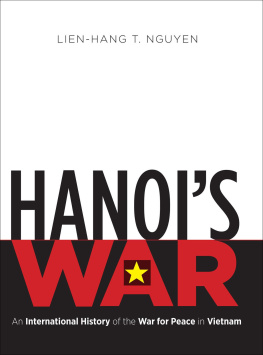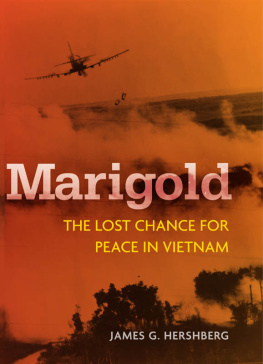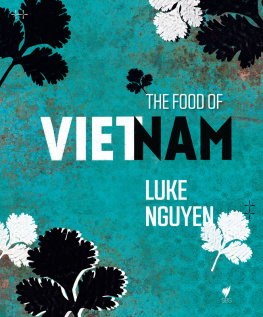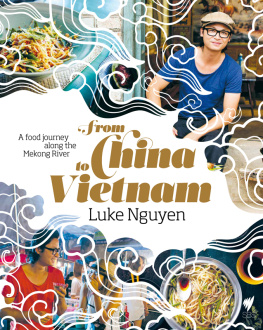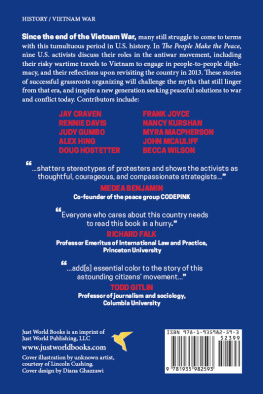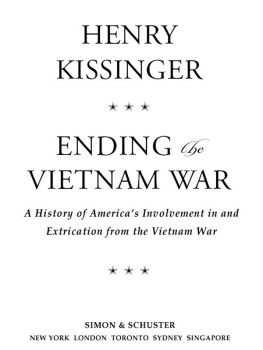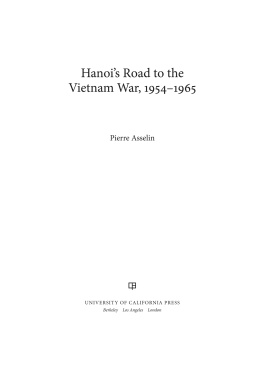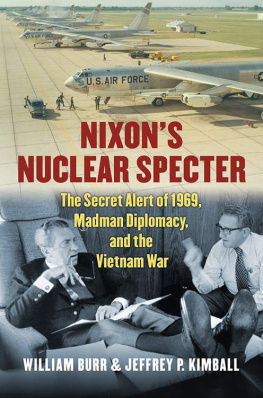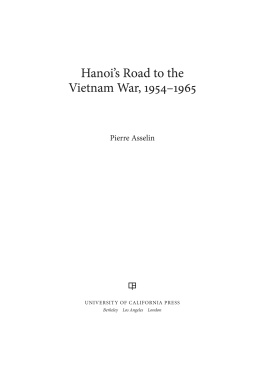Richard Nixon and Nguyen Van Thieu, followed by Henry Kissinger, Nguyen Cao Ky, and Ambassador Ellsworth Bunker, at the Independence Palace in Saigon, July 1969
Faydang Lobliayao, Le Duan, Prince Souphanouvong, Pham Van Dong, Sithon Kommadam, and other Vietnamese leaders and Laotian guests before the departure of the Lao Peoples Delegation from Hanoi, May 1970
Secretary of State William Rogers, Nguyen Van Thieu, and Foreign Minister Tran Van Lam
Acknowledgments
This book would not have been possible without the critical support of a small village of colleagues, friends, and family. Certain individuals at key institutions deserve special mention: Paul M. Kennedy, John Lewis Gaddis, Ann Carter-Drier, and Susan Hennigan at International Security Studies at Yale University; Lynn Eden and Scott Sagan at the Center for International Security and Cooperation at Stanford University; Stephen Rosen at the former John M. Olin Center for Strategic Studies at Harvard University; and Wm. Roger Louis and Miriam Cunningham at the National History Center. The Smith Richardson Foundation, Fulbright Program, and Colleges of Arts and Sciences at the University of Kentucky and at Yale University also provided key financial support. The staff at the Nixon and Ford presidential libraries, National Archives and Records Administration, National Security Archives, and Vietnam Archives at Texas Tech University made doing research in the United States an enjoyable experience. Correspondingly, Truong Xuan Thanh at the Vietnam Ministry of Foreign Affairs, Nguyen Tien Dinh and Pham Thi Hue at the Vietnam National Archives, Nguyen Vu Tung at the Diplomatic Academy of Vietnam, and most importantly Colonel Nguyen Manh Ha at the Military Institute of Vietnam made sure that I always felt at home in Vietnam, had documents to read, and had enough artichoke tea to drink. Finally, the staff at the French Foreign Ministry Archives, British National Archives, and Hungarian National Archives ensured that my research always proceeded smoothly.
I owe much to the higher institutions that have educated me and now make it possible for me to remain gainfully employed. The latter first: the Department of History at the University of Kentucky remains a tremendous place to pursue Vietnam War studies thanks to the legacy of George C. Herring. My colleagues and friends on the seventeenth floor of Patterson Office Tower presently make my workplace a wonderful place to teach and write. At my alma mater, the University of Pennyslvania, Walter McDougall and Drew Gilpin Faust sparked my initial interest in history, which continued to flourish during my graduate school years at Yale. In New Haven, Paul Kennedy created the ideal intellectual and social community, while John Gaddis acted as a superb mentor and role model. It is Johns standard of approval that I sought for this book and will continue to seek for all future scholarship.
Two professional societies have become homes for me over the years, making their annual meetings more like reunions than conferences. My colleagues and friends in the Society for Historians of American Foreign Relations and the Vietnam Studies Group are too numerous to list, but I must name a few. They, along with my friends from various stages of life, have made the decade-long journey to complete this book an adventure and not an ordeal: Naveen and Faiz Bhora, David Biggs, Kate Black and Kathi Kern, Jennifer Boittin, Lady Borton, Bob Brigham, Kate Cambor, Jessica Chapman, Mei Chin, David Elliott, Kate Epstein, David and Thuy Hunt, George Herring and Dottie Leathers, Ryan Irwin, Pierre Journoud, Ben Kiernan, Jeffrey Kimball, Helen Kinsella, Yeewan Koon, Mark Lawrence, Adriane and Christian Lentz-Smith, Lorenz Luthi, Erez Manela, Vojtech Mastny, Steve Maxner, Ccile Mentrey-Monchau, Nguyen Hong Nhung, Jason Parker, Lorraine Paterson, Julie Pham, Jeremy and Beate Popkin, John Prados, Sophie Quinn-Judge, Daniel Sargent, Karthika Sasikumar, Sarah Snyder, Ronald and Dianne Spector, Balasz Szalontai, Michele Thompson, Hoang and Hanh Tran, Thanh and Phuong Truong, Tuong Vu, and last, but never least, Marilyn Young. One friend deserves special note: Susan Ferber played an integral role at every stage not only in the life of this book but also in my own life.
A few individuals who read and re-read this manuscript deserve special mention. Larry Berman, who is a dear friend and mentor, has shown me that being a scholar in Vietnam can reach rock star proportions. Peter Zinoman and Edward Miller read many chapters and gave me critical feedback at every juncture. Pierre Asselin, Mark Bradley, and Andrew Preston read the book cover to cover, and their big-picture comments as well as their line-by-line edits helped make it what it is now. I owe a significant debt of gratitude to Fred Logevall, Chris Goscha, and Jim Hershberg. Their friendship, support, and scholarship were essential to this books completion. Their respective book series represent the cutting edge of war scholarship. One individual whose generosity and breadth and depth of knowledge continue to humble me is Merle Pribbenow. Merle is a generous scholar with an encyclopedic knowledge of the war, and the importance of his role in this book cannot be overemphasized. And finally, I owe much to George Herring. It is a delight when one meets a giant in ones field and discovers that he conforms to every expectation and more. The father of Vietnam War studies is a southern gentleman who found time to read and comment on an entire draft of the book as well as provide bourbon and basketball tickets at the right times.

